Award winning dermatology service, with over 20 years on experience
Short waiting lists, on some occasions offering same week appointments
Safe environment, in Care Quality Commission approved facilities
Basal Cell Carcinoma Treatments Include:
Basal Cell Carcinoma Treatment in Canterbury and Kent UK
The incidence of all types of skin cancer has increased dramatically over the last few decades. At the Canterbury Skin and Laser Clinic, we are experts in diagnosing and treating cancer. Whether it be treated by topical therapy, radiotherapy or plastic surgery, you can rest assured that our consultants will provide you with the best possible care. Please see before and after images below of basal cell carcinoma treated surgically.
Basal cell carcinoma starts in the basal layer of cells that line the epidermis, and accounts for around 75% of all skin cancer cases. Basal cell carcinomas can appear anywhere on the body, but most commonly found on areas of the body which are more frequently exposed to sunlight, including the face, head, neck and ears. There are several variants of basal cell carcinoma and in all cases, the lump may slowly get bigger, become crusty, bleed or develop into a painless ulcer.
Alternative names: BCC, rodent ulcer, non-melanoma skin cancer
WHAT Is BASAL CELL CARCINOMA?
Basal cell carcinoma is the commonest form of skin cancer accounting for around 85% of skin cancer in the UK. It is a slow-growing malignant tumour arising from the epidermis at the skin surface. Pleasingly, BCC has a very low rate of growth and is highly unlikely to spread to other areas, rendering it relatively harmless.
If left, most basal cell carcinomas will continue to grow slowly over time causing cosmetic disfigurement. The infiltrative variants are more likely to involve other tissue and structures but this tends to occur only if treatment of the BCC is neglected for some time. Spread to lymph nodes and internally is rare.
WHAT ARE THE SYMPTOMS OF BASAL CELL CARCINOMA?
There are several variants of basal cell carcinoma, all of which tend to occur in areas of sun exposure:
- Superficial BCCs appear as a scaly plaque and might resemble psoriasis or eczema.
- Nodular BCCs appear as a slightly shiny or translucent nodule which may ulcerate centrally and have blood vessels visible on their surface
- Infiltrative (or morphoeic) BCC are less well defined plaques and can be difficult to identify
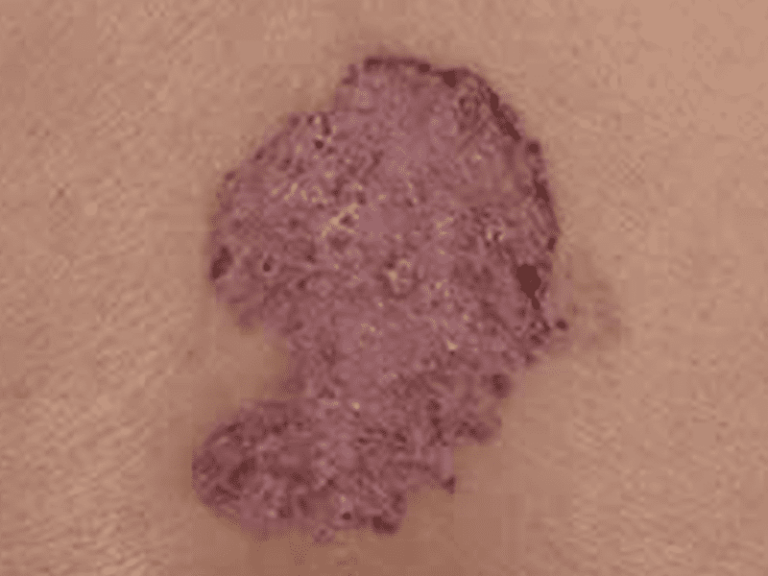
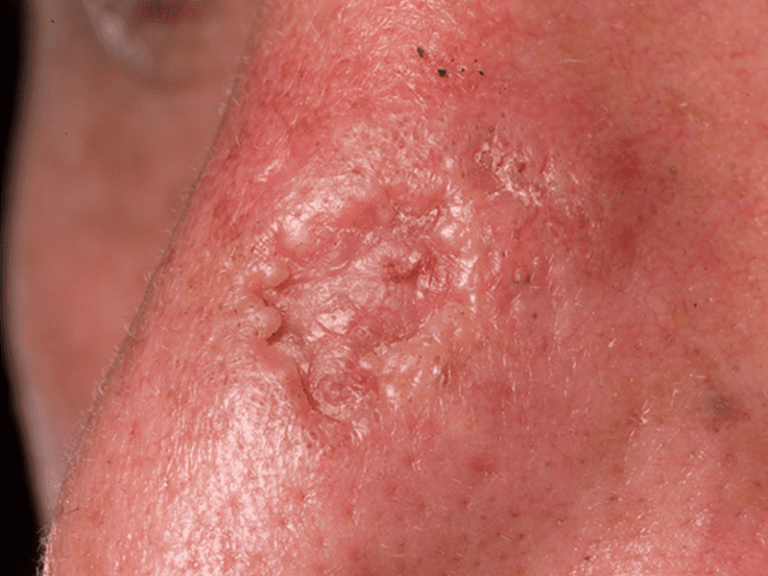
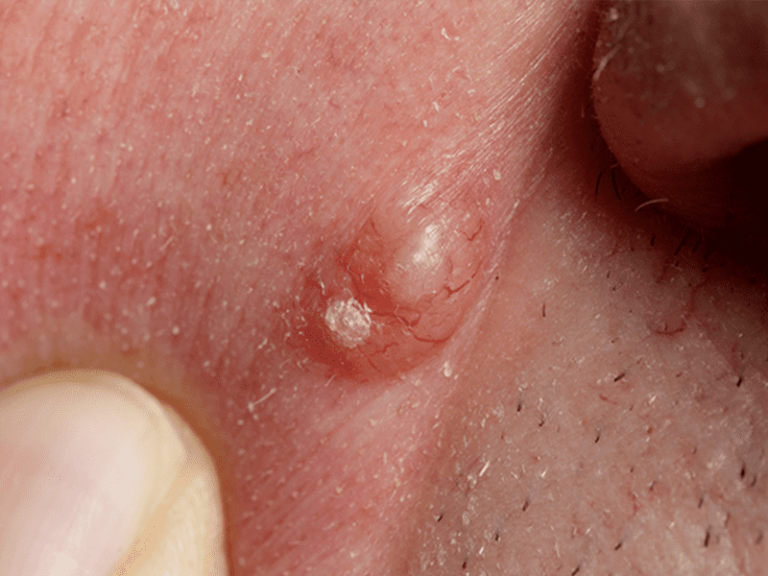
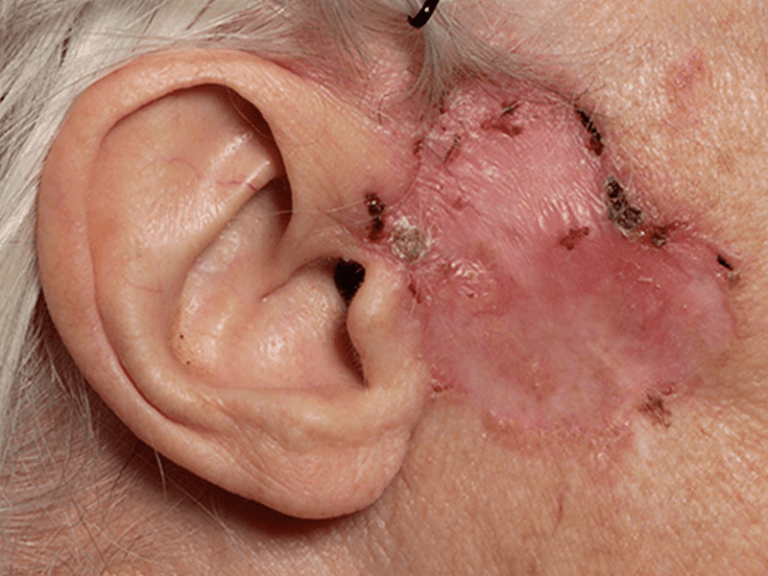
HOW CAN BASAL CELL CARCINOMA BE PREVENTED?
You can lower your chances of developing basal cell carcinoma by reducing your exposure to UV light, both in the form of sunlight and sunbeds. When out in the sun, it is important to protect the skin from sunburn by using a high factor sun cream, avoiding the sun during the hottest part of the day and covering the skin when exposed to sunlight. The earlier basal cell carcinoma is diagnosed and treated, the less likely you are to be left with scarring so checking your skin regularly for signs of skin cancer is really important. If you notice anything on your skin you are worried about, see a consultant dermatologist who will assess your lesion and can carry out treatment if required.
FREQUENTLY ASKED QUESTIONS
IS SKIN CANCER HEREDITARY?
Skin cancer is not hereditary in the sense that it is passed down through a gene. However, skin type does run in families so those more likely to develop skin cancer are often in the same family.
AM I LIKELY TO GET BCC AGAIN AFTER IT HAS BEEN REMOVED?
If you’ve had a BCC in the past, there’s a chance the condition may return.
The chance of non-melanoma skin cancer returning is increased if your previous cancer was large in size and high grade (severe). It’s also important to be aware that if you’ve had a BCC, your risk of developing another one in the future is increased because these cancers are often multiple. This means it’s important to regularly examine your skin to check for new tumours.
WHO IS MOST AT RISK OF GETTING SKIN CANCER?
Men are more likely than women to develop skin cancer and it is more common in the elderly.
WHAT FACTOR SUNSCREEN SHOULD I USE?
It is recommended to use a high factor of sunscreen no matter your skin type. SPF30 with a 4-star UVA rating during the summer is recommended for those with paler skin to stop burning but also to help prevent wrinkles and sunspots in those who don’t burn as easily.
DO SUNBEDS CAUSE SKIN CANCER?
Research shows sun beds are a significant risk factor in skin cancer.
HOW CAN I PREVENT SKIN CANCER?
Protecting your skin is, of course, always the best course of action. The easiest ways you can do this include:
· Wearing a waterproof, high level of SPF protection when in the sun
· Use a daily moisturiser with SPF protection
· Avoid the sun when it is at its strongest during the day
· Wear a hat when in the sun
· Sit in the shade
HOW DANGEROUS ARE BASAL CELL CARCINOMAS?
BCC’s rarely spread beyond their original tumour site, however if left to grow they can be disfiguring, grow wide and deep into the skin and destroy skin, tissue and bone.
CAN BASAL CELL CARCINOMA TURN INTO ANOTHER FORM OF SKIN CANCER, SUCH AS MELANOMA?
No, each skin cancer is separate and distinct and basal cell carcinoma does not progress into melanoma skin cancer.
REQUEST A CALL BACK
Please fill in this form and one of our team will give you a call back to arrange a consultation with one of our expert dermatologists.
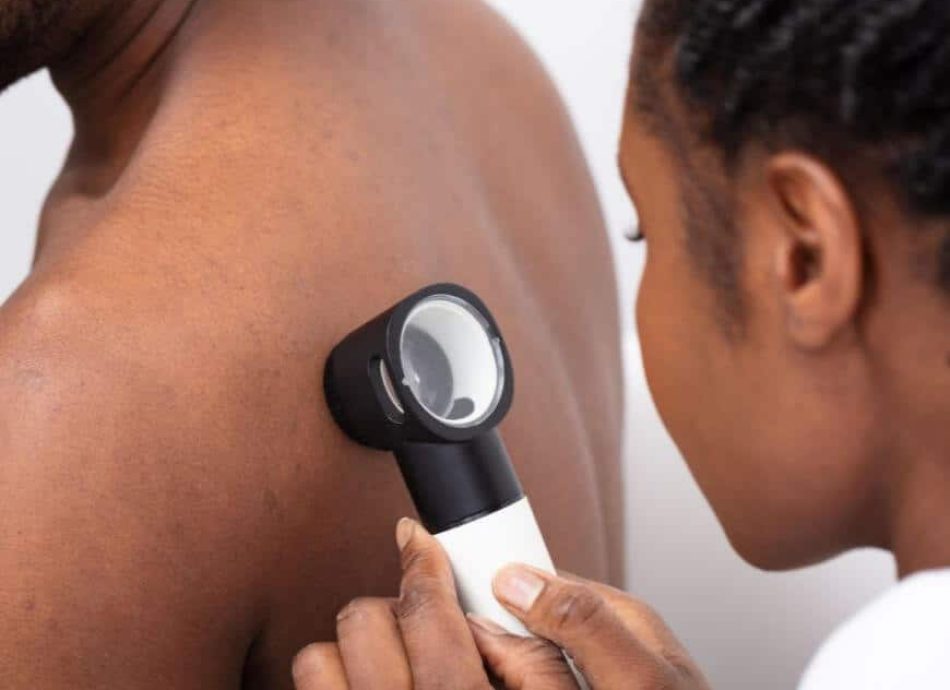
What our Customers Say
WHY TREAT BASAL CELL CARCINOMA AT CANTERBURY SKIN AND LASER CLINIC?
Here at Kent’s leading private skin and laser clinic, our experts are specialists in all aspects of dermatology, skin cancer, anti-ageing and beauty treatments. We are one of the few skin clinics in the UK where all medical consultations and treatments are provided by specialist doctors with Dermatology experience and laser training.
Canterbury Skin and Laser Clinic is regulated by the Care Quality Commission, ensuring the best level of treatment is provided to you in a safe environment. Our Clinical Lead Dr Mark Hudson-Peacock is a member of the British Association of Dermatologists, the British Laser Medical Association, the British Hair and Nail Society, the European Academy of Dermatology and Venereology and is certified by the Consulting Room. We have won many awards including the WhatClinic Patient Service Award in 2019 and the ghp Healthcare and Pharmaceutical Awards 2019.
skin cancer INSIGHTS AND ADVICE

Complete Fall Skincare Guide
Embrace the season of transformation – Autumn. With its vibrant hues, this magical time of year also brings unique challenges for your skin. As the crisp air sets in and the days grow shorter, it’s not only autumn we’re welcoming but also the reminder that
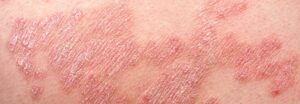
Comprehensive Guide to Understanding Eczema
October is globally observed as Eczema Awareness Month, drawing focus to the people grappling with this challenging skin condition. Our mission, not just in October but always, is to empower you with robust knowledge about eczema‘s root causes, various treatments and useful coping techniques. This
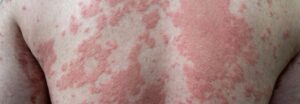
Unravelling Psoriasis: The Focus of Psoriasis Awareness Month
Each August, we commemorate Psoriasis Awareness Month, a time dedicated to elevating public understanding of psoriasis – a chronic skin ailment affecting countless individuals worldwide. The initiative is designed to dispel myths surrounding psoriasis, encourage early detection and advocate for impactful treatment methods. To those








